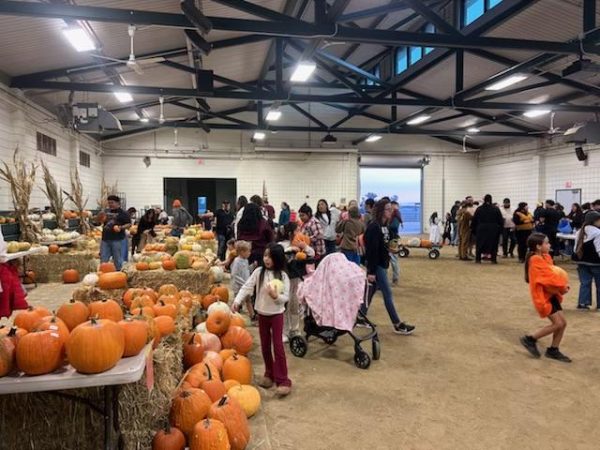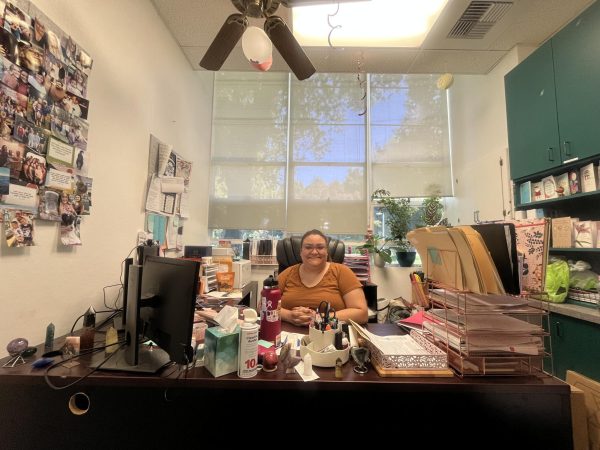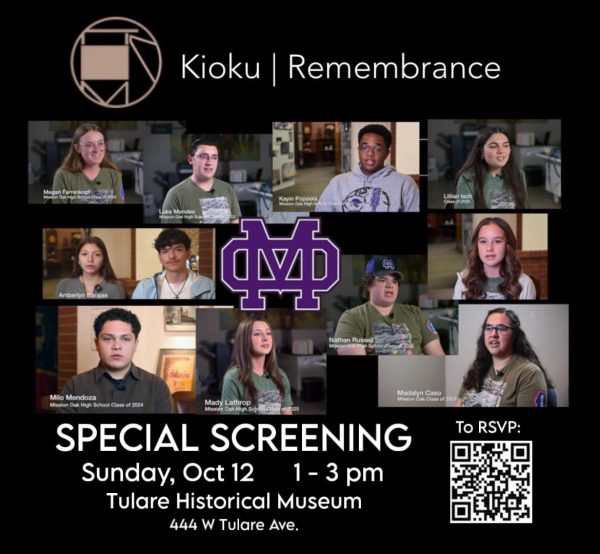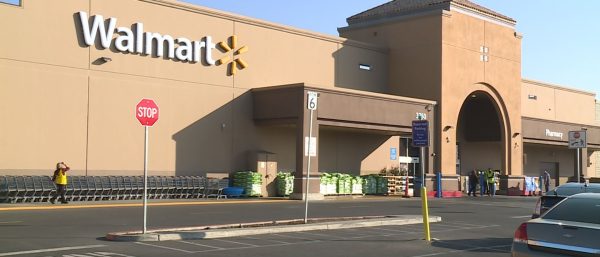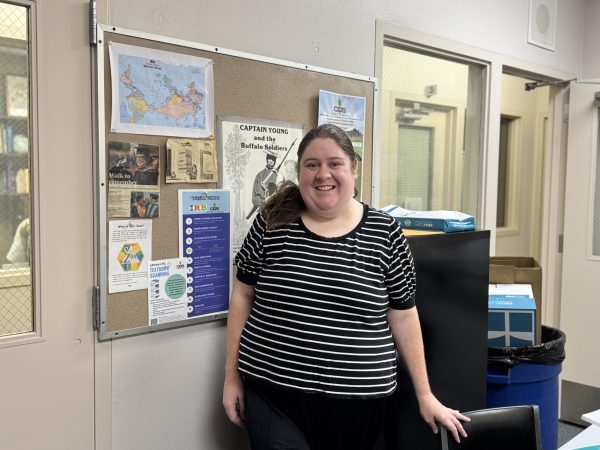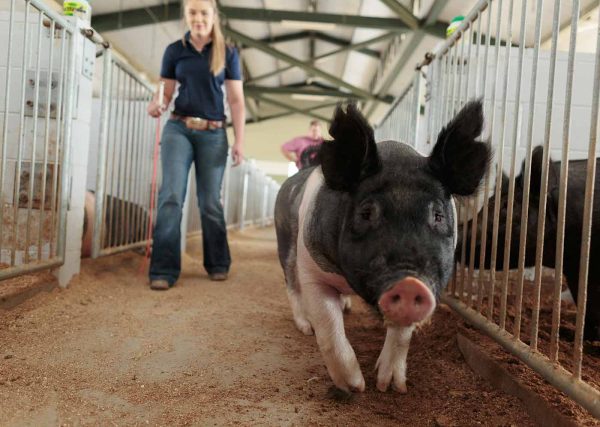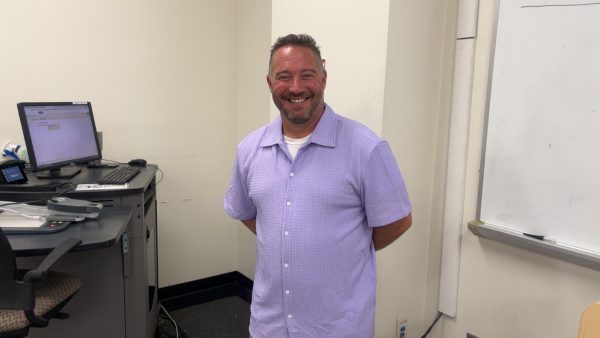Cesar Chavez: Icon of the Central Valley
March 31 marks what would have been Chicano civil rights activist and California hero Cesar Chavez’s 95th birthday. In celebration of the man himself, his message, and how he has affected people around us at our very own college, The Campus will explore the life and effects of Cesar Chavez.
Born on his family’s farm on the outskirts of Yuma Arizona, Cesar Estrada Chavez was born into a hardworking family of farmers. In 1938, near the end of the Great Depression, the family would lose their farm, supposedly due to a deal that went wrong with an anglo neighbor of the Chavez’s.
After losing the family farm, Cesar and his family moved to Northern California to begin a new life as migrant farmers, traveling from field to field depending on the seasons to sustain jobs year-round. It was here, in the fields of California’s agricultural sector, where Cesar would first see the injustices that farmworkers faced. Namely poor working conditions, exposure to deadly pesticides, low pay, and no guarantee of health insurance.
Some of the fields in which Chavez worked after they had settled in San Jose in 1939 were, according to ufw.org, “ the fields of California from Brawley to Oxnard, Atascadero, Gonzales, King City, Salinas, McFarland, Delano, Wasco, Selma, Kingsburg, and Mendota.” He worked in these fields, which are so very close to where we live, to support his family and try to fund the education of his younger siblings.
At the age of 19 in 1946, Chavez joined the U.S. Navy and was shipped out to the western pacific during the aftermath of the second world war. While his time in the service was fairly unremarkable, he was able to see things that he could have never seen in his migrant farmer lifestyle in California.
After he got out in 1948, he married Helen Fabela and settled in Delano for a time to start his family. Shortly after this though, he would relocate his family back to San Jose to start the next chapter of his life.
Four years later, Cesar Chavez would be both recruited and trained by Fred Ross, one of the founders of the San Jose chapter of the Community Service Organization, and this experience would shape his ideas of organization in the future.
As Cesar would say in Jacques E. Levy’s book Cesar Chavez: Autobiography of La Causa, “I learned quite a bit from studying Gandhi, but the first practical steps I learned from the best organizer I know: Fred Ross Sr. … He changed my life.” It was here also during his days at the CSO that he would meet his future partner, Dolores Huerta, who also was concerned with the living conditions of the migrant farmworkers.
At the time Cesar Chavez joined the CSO, it was regarded as the most significant Latino civil rights group. For his contributions specifically though, according to cesarchavezfoundation.org, “Cesar spent 10 years with the CSO, coordinating voter registration and get-out-the-vote drives, leading campaigns against racial and economic discrimination and organizing new CSO chapters across California.”
After 10 years of doing work for the CSO, the desire to create a union on his own had formed. He had seen for too long the shambles that farmworkers had to live in. On March 31st, 1962 (Chavez’s birthday) Cesar, along with Dolores Huerta and some others, would form the United Farm Workers.
With the symbol of a black eagle on a red background and $1,200 in his bank account, Cesar risked everything stable he had in his life to try and make the world a better place.
In 1965, three years after the official formation of the UFW, the Filipino grape farm workers had initiated a strike in Delano. Cesar Chavez and Dolores Huerta gladly joined alongside them in what would soon be known as the “Delano grape strike” of 1965-1970.
During this labor strike, Cesar Chavez would help orchestrate a 340-mile march of farmworkers from Delano to Sacramento with the intention of picketing outside of the state’s capital to obtain the things he promoted: better pay, better living, better safety.
Cesar Chavez’s achievements are spread far and wide, and even today there are effects of the things he did. The cause in which Cesar Chavez was a part, that being the larger Chicano movement, is still very much alive today.
A Professor of Chicano Studies here at COS, Octavio Barajas, explained that “[Chavez’s] will to fight, and his organizing, his capacity to build confidence and trust among the union organizers, how he was able to see the farmworkers as equals and equally involve them in making a difference in their own lives and the lives of their fellow workers,” is what makes Cesar Chavez so significant to him.
The professor would go on to say, “I think to be able to see the value in people, is something very key about him, that is connected to his legacy. It was a major part of his success, was to have that virtue of seeing value in other people.
His sense of humility is something about him that is iconic, and something I value tremendously. He doesn’t typically fit the role of this outspoken leader, he was more level-headed and grounded.”
This humility was very apparent within Cesar’s life. For example, according to cesarchavezfoundation.org, Cesar was offered a job by President Kennedy as not only a member of the Peace Corps for Latin America but as the head of the chapter 1992. In his humility, he declined the job – which would have surely given him a steady wage – to fight for the rights of Chicano farmworkers back home.
Cesar’s virtuous nature was seen also in his method of protesting. After his march on Sacramento had passed and national attention was beginning to drift away from the plight of the farmworkers, Chavez had taken inspiration from another great propagator of peaceful protest: Mahatma Gandhi.
Through fasting just as Gandhi did nearly 20 years prior, he was able to prove to many Chicanos that you can cause change through nonviolent acts and the value of patience. In 1968, Chavez went on a water-only 25 day fast, fasted twice again in 1972 for 24 days, and in 1988 for 36. (Cesar Chavez Foundation)
Cesar would explain the importance of fasting in a speech, taken from ufw.org, “A fast is first and foremost personal. It is a fast for the purification of my own body, mind, and soul.
The fast is also a heartfelt prayer for purification and strengthening for all those who work beside me in the farmworker movement.
The fast is also an act of penance for those in positions of moral authority and for all men and women activists who know what is right and just, who know that they could and should do more.
The fast is finally a declaration of non-cooperation with supermarkets who promote and sell and profit from California table grapes. During the past few years, I have been studying the plague of pesticides on our land and our food.”
Through his fasting, he was able to attract further attention to the causes of suffering for farmers in the fields. However, after his last fast in 1988, his health would slowly deteriorate over the next few years. In 1993, while in Arizona to help defend the case against an agribusiness corporate shill, Cesar Chavez would pass away while staying the night in a small home near the Arizona-Mexico border.
To many that call themselves Chicano or Chicana though, the impacts of the man are still very much felt today. Co-president of the MEChA club here at COS, Emily Contreras, can recall the effects of Chavez, even though the man passed away nearly a decade before she was born.
“I think the first time I learned about Cesar Chavez was in middle school. My parents were field workers and were part of an organization called The Migrant Program. I remember them speaking about the contributions he made and what a great leader he was,” Contreras stated.
She would add, “In my mind, the most important part of who Chavez was has to be the more passive approach to get his point across. It reminds me of the saying, ‘silent but deadly’, through this, he was able to bring together farm workers from all over the Central Valley and create a strong union full of determined people.”
That strong union of determined people would not only promote the rights of farmworkers in the fields, but the rights of all Mexican-Americans who would call themselves Chicanos. The work of Chavez was just a part of the larger Movimiento for the advancement of Chicanos.
“What is a Chicano? It is someone who is embracing their cultural heritage with pride. It’s also consciousness and being more aware of being anti-racist, being more equity-minded.
To be Chicano is to embrace these things in the context of our cultural inheritance, from which we, well, inherited, and it is finding creative ways to be who you are,” Barajas said.
Contreras, who has grown up in a different generation of a similar culture, as well as being female, has an alternative perspective from the professor.
“To me,” Contreras began, “being a Chicana means embracing my Mexican heritage and keeping my culture alive while also being grateful for the opportunity to advance my education in the United States.
What I mean by that is my parents immigrated from Mexico to the U.S., and had they not done that we would not have had the money to afford an education in Mexico.
I think that is why the Chicano movement is so important to me because the Chicano generation from the 70s fought to ensure the future generation would have this opportunity.”
From the generations of Chicanos who have come before, like Cesar Chavez, Dolores Huerta, or those that participated in the 1968 L.A. Walkouts, they have paved a way forward for the advancement of the Movimiento that continues to this day, as our generation continues to pave the way towards justice.
“The importance of what Cesar represented continues in the 1960s, there is still relevancy in the present day. There is still a lot to be done, and there are a lot of strong local connections because that history is not something that is far removed from us. We are privileged to have many of the members who were involved in the farmworkers union in the 1960s here on our campus,” Barajas said.
Those same members of the movement are going to be hosting a vaccination clinic on March 25, students can get involved and be a part of this vaccination clinic by showing up on that date from 3:00 p.m. to 7:00 p.m at the Visalia campus quad. Be sure to visit and celebrate the people who have uplifted the rights for so many Chicanos right here in our Central Valley, and check out all our other news here on The Campus!
Sources:
https://www.youtube.com/watch?v=Vb93EX94q1w
https://chavezfoundation.org/about-cesar-chavez/#1517518277469-2f378389-b859
Cesar Chavez: Autobiography of La Causa by Jacques E. Levy
https://ufw.org/research/history/story-cesar-chavez/
https://edsitement.neh.gov/lesson-plans/si-se-puede-chavez-huerta-and-ufw
https://www.biography.com/activist/cesar-chavez


